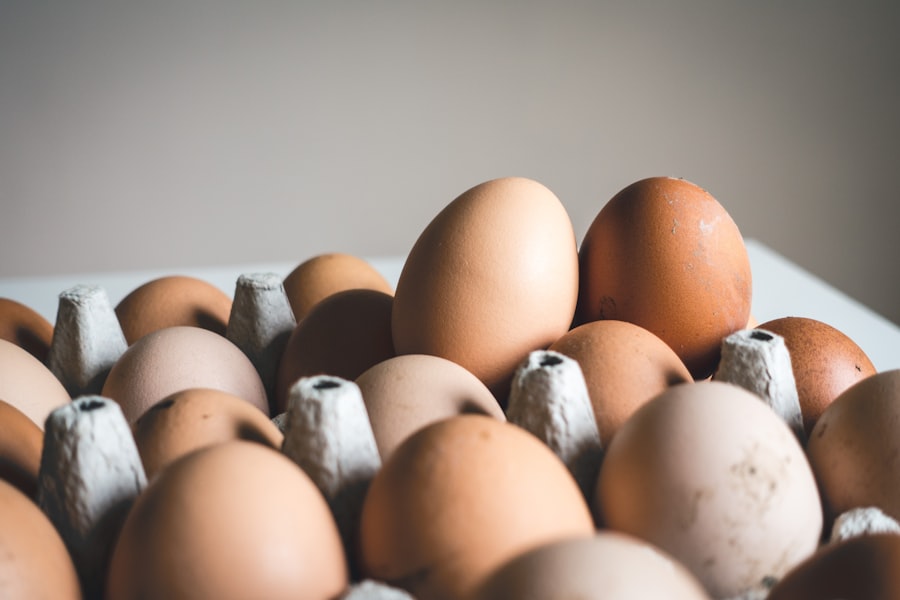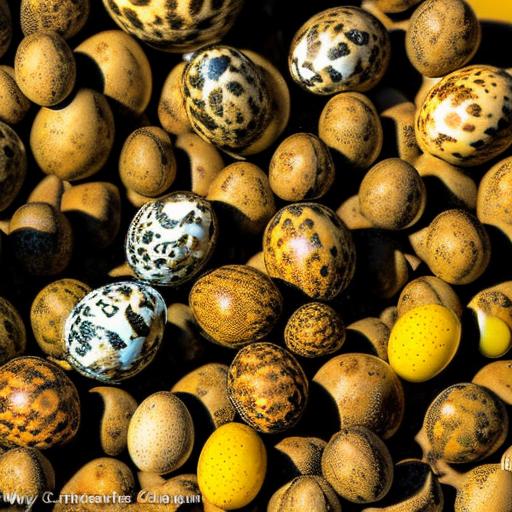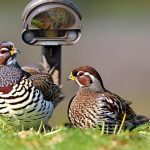Quail eggs are small, speckled eggs that come from the quail bird, a small game bird that is often raised for its meat and eggs. Quail eggs are known for their delicate flavor and high nutritional value, making them a popular choice for culinary purposes. In addition to being used in cooking, quail eggs are also sought after for their fertility, as they can be hatched to produce quail chicks. This has led to a growing interest in quail egg production and the factors that affect the fertility of these eggs. Understanding the factors that influence the fertility of quail eggs is essential for those looking to maximize their hatch rates and produce healthy quail chicks.
Key Takeaways
- Quail eggs are smaller than chicken eggs and have a higher nutritional value.
- Factors affecting fertility of quail eggs include age of the quail, diet, and environmental conditions.
- Fertile quail eggs can be stored for up to 10 days before incubation.
- Proper storage conditions for fertile quail eggs include a temperature of 55-60°F and high humidity.
- Signs of fertility in quail eggs include a clear and defined yolk, blood vessels, and a visible embryo.
Factors Affecting Fertility of Quail Eggs
Several factors can affect the fertility of quail eggs, including the age and health of the quail birds, the quality of the breeding environment, and the handling and storage of the eggs. The age and health of the quail birds play a significant role in the fertility of their eggs. Young, healthy birds are more likely to produce fertile eggs compared to older or unhealthy birds. Additionally, the breeding environment should be carefully managed to ensure optimal fertility. This includes providing the birds with a balanced diet, clean water, and suitable living conditions. Stress and overcrowding can negatively impact the fertility of quail eggs, so it is important to create a low-stress environment for the birds. Proper handling and storage of the eggs are also crucial for maintaining their fertility. Quail eggs should be collected promptly after they are laid and stored in a cool, humid environment to prevent them from drying out or becoming contaminated. By paying attention to these factors, quail breeders can increase the likelihood of producing fertile eggs for hatching.
How Long Can Fertile Quail Eggs Be Stored
Fertile quail eggs can be stored for a limited period before they are incubated. The length of time that fertile quail eggs can be stored depends on several factors, including the temperature and humidity of the storage environment, as well as the age and quality of the eggs. In general, fertile quail eggs can be stored for up to 7-10 days before they are placed in an incubator. However, it is important to note that the hatch rate of stored eggs may decrease over time, so it is best to incubate them as soon as possible for optimal results. Proper storage conditions are essential for maintaining the fertility of quail eggs during this period.
Proper Storage Conditions for Fertile Quail Eggs
To maintain the fertility of fertile quail eggs during storage, it is important to provide the proper conditions. The ideal temperature for storing fertile quail eggs is around 55-60 degrees Fahrenheit, with a humidity level of 70-80%. This can be achieved by storing the eggs in a cool, dark place such as a cellar or refrigerator. It is important to avoid storing the eggs in areas with extreme temperature fluctuations or direct sunlight, as this can negatively impact their fertility. Additionally, the eggs should be stored with the pointed end facing downward to help prevent the yolk from sticking to the shell membrane. By providing the proper storage conditions, quail breeders can maximize the fertility of their eggs and increase their chances of a successful hatch.
Signs of Fertility in Quail Eggs
There are several signs that indicate the fertility of quail eggs, which can be helpful for breeders when selecting eggs for incubation. One common method for determining fertility is called “candling,” which involves shining a bright light through the egg to observe its contents. Fertile quail eggs will show clear signs of development, such as visible veins and a dark spot where the embryo is forming. In contrast, infertile eggs will appear clear or may show signs of spoilage, such as blood spots or unusual odors. By candling the eggs before they are placed in an incubator, breeders can identify which ones are most likely to hatch and remove any that are unlikely to be successful.
Importance of Timely Incubation

Timely incubation is crucial for maximizing the hatch rate of fertile quail eggs. Once quail eggs have been laid and collected, they should be placed in an incubator as soon as possible to ensure optimal fertility. Delaying incubation can decrease the hatch rate and result in lower-quality chicks. Additionally, storing fertile quail eggs for extended periods before incubation can lead to a decrease in hatchability, as the viability of the embryos diminishes over time. By promptly placing fertile quail eggs in an incubator, breeders can increase their chances of producing healthy quail chicks.
Conclusion and Recommendations
In conclusion, understanding the factors that affect the fertility of quail eggs is essential for those looking to maximize their hatch rates and produce healthy quail chicks. By paying attention to the age and health of the quail birds, the quality of the breeding environment, and the handling and storage of the eggs, breeders can increase the likelihood of producing fertile eggs for hatching. Proper storage conditions, such as maintaining the ideal temperature and humidity levels, are crucial for maintaining the fertility of quail eggs during storage. Additionally, timely incubation is important for maximizing the hatch rate and producing healthy quail chicks. By following these recommendations, quail breeders can improve their success in hatching fertile quail eggs and raising healthy quail chicks for production or other purposes.
If you’re considering hatching quail eggs, you may also be interested in learning about the best kind of coop for chickens. A well-designed coop is essential for the health and safety of your flock. Check out this informative article on what kind of coop is best for chickens to ensure that your feathered friends have a comfortable and secure home.
FAQs
How long can you keep fertile quail eggs before incubating?
Fertile quail eggs can be kept for up to 7-10 days before incubating, as long as they are stored properly.
What is the proper way to store fertile quail eggs before incubating?
Fertile quail eggs should be stored in a cool, dry place with a consistent temperature of around 55-60 degrees Fahrenheit and a humidity level of 70-80%.
Can fertile quail eggs be refrigerated before incubating?
It is not recommended to refrigerate fertile quail eggs before incubating, as the fluctuating temperatures and humidity levels in a refrigerator can negatively impact the viability of the eggs.
How can you tell if a quail egg is fertile before incubating?
Fertile quail eggs can be identified by the presence of a small, white “bullseye” or “blastoderm” on the yolk when candled. This indicates that the egg has been fertilized and is capable of developing into a chick if incubated.
What is the ideal temperature and humidity for incubating fertile quail eggs?
The ideal temperature for incubating fertile quail eggs is around 99.5 degrees Fahrenheit, with a humidity level of 50-60% for the first 14 days, and 65-70% for the final 3 days before hatching.
Meet Walter, the feathered-friend fanatic of Florida! Nestled in the sunshine state, Walter struts through life with his feathered companions, clucking his way to happiness. With a coop that’s fancier than a five-star hotel, he’s the Don Juan of the chicken world. When he’s not teaching his hens to do the cha-cha, you’ll find him in a heated debate with his prized rooster, Sir Clucks-a-Lot. Walter’s poultry passion is no yolk; he’s the sunny-side-up guy you never knew you needed in your flock of friends!







